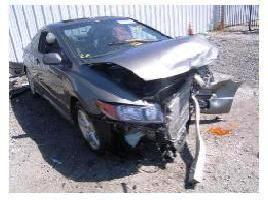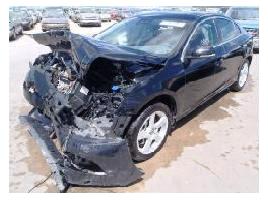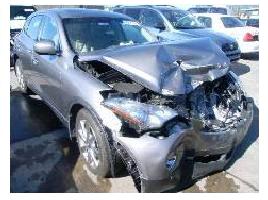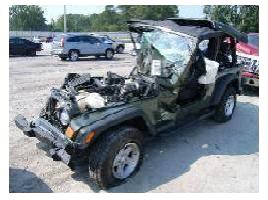Ask an Attorney a Question for FREE!
Additional Insurance Clause
This clause will decide which insurance company should pay first and how much
Every insurance policy that I have read has an Additional Insurance Clause in it. Chances are that your policy will have them and apply them when necessary.

This clause is designed to protect the insurance companies against having to provide double coverage (double dipping).
This clause becomes an issue or becomes “active” when two insurance policies cover the same car.
A good example of this is when you have a personal policy that covers your own car and also covers cars you use temporarily (rental cars).
The rental car company probably also have insurance on their rental fleet. Two insurance policies would provide coverages on a rental car you use.
What this clause does is it makes your auto policy “become” secondary to any other insurance policy that could apply to the accident.
If you purchase “extra” insurance on a rental car (they usually ask you to), then this clause would be at issue also.
If you happen to get in an accident while using the rental vehicle, then the insurance policy that you purchased will be primary and the policy in your own auto will be secondary.
What does that mean?
It means that the primary policy will pay for the damage as agreed in that policy, up to their limits of liability or fault.

If the damage exceeds the limit that you purchased in that primary policy, then your auto insurance will “kick in” (as secondary) and will provide coverage for anything in excess (up to the limits of their liability).
Note that this is not an all or nothing proposition.
For example, if the primary policy only provides property damage coverage, then the secondary policy will pay for medical bills and rental car.
They will complement each other. The Additional Insurance Clause will make your own policy secondary to any available coverage, not secondary to any other policy.
Another situation where this occurs is when you drive someone else’s vehicle.
Say that you get in an accident in that car. Then what? Whose insurance company should pay?
You will hear insurance agents and adjusters tell you that insurance follows the car and not the driver. Technically, this statement is not accurate.
Your insurance policy will always follow you at the very least as a secondary source of coverage (exactly what an Additional Insurance Clause does).
However, in this case, the insurance of the owner of the car will cover the vehicle first, as primary source of coverage.

If his/her policy does not provide full coverage or falls short (the damages are more than the limit of coverage) then the secondary policy (your policy) will cover the excess.
If he/she does not have insurance on that vehicle, then your policy will become primary (secondary to nothing).
Some people believe that they have the choice to choose which insurance company should pay, this is incorrect.
The Additional Insurance Clause is what forbids you from getting double recovery. Your insurance provider will not provide any coverage until they know that they are “the primary policy”.
The insurance carriers will conduct an investigation of the issue.
They will take recorded statements from the owner of the car, from the driver, and they will ask for the owner’s insurance policy and declarations page (if any insurance exist).
In the case of a rental car, they will look for the rental agreement (or loaner agreement) to confirm that you did not purchase any extra insurance.
Although you can be double insured (a good thing), you could be waiting for a decision on insurance coverage for an extended period of time.

If you are pressed for time (medical bills, car repairs, funeral expenses, rental car, etc.), suggest to your insurance company to advance payments for those charges and have them subrogate against the other insurance company (ask them to pay them back when everything is settled down).
Remember that your insurance company has a duty to you to “act in good faith” and to protect your interest. Remind them of their duty in writing.
Click below for an explanation of insurance coverages and terms:
Automobile Liability Insurance or Liability Page 1
Automobile Liability Insurance or Liability Page 2
Automobile Medical Payments or Personal Injury Protection (PIP) Page 1
Automobile Medical Payments or Personal Injury Protection (PIP) Page 2
Collision Coverage (Protection Against Loss to the Auto) Page 1
Collision Coverage (Protection Against Loss to the Auto) Page 2
Comprehensive Coverage (Protection Against Loss to the Auto) Page 1
Comprehensive Coverage (Protection Against Loss to the Auto) Page 2
Under or Uninsured Motorist Property Damage (UMPD) Page 1
Under or Uninsured Motorist Property Damage (UMPD) Page 2
Under or Uninsured Motorist Bodily Injury (UMBI)
Rental Reimbursement or Loss of Use Coverage Page 1
Rental Reimbursement or Loss of Use Coverage Page 2
Restoration Coverage
Towing and/or Road Assistance Coverage (Emergency Packages)
Insurance Clauses and Terms
Overview
Actual Cash Value or ACV
Additional Insurance Clause
Cancellation of Coverage Clause
Choice of Law Clause
Forum Selection Clause
Duty to Cooperate Clause
Duty to Report Losses Clause
Financial Responsibility Clause
Insurable Interest Concept
Interpretation of the Policy Concept
Mandatory Arbitration Clause
Mitigation of Damages Clause
Non Duplication of Benefits Clause
Proof of Loss Clause
Promissory Estoppel Concept
Reservation of Rights Concept
Reasonable and Necessary Clause
Right of Appraisal Clause
Right of Settlement Clause
Rights of Counsel Concept
Subrogation of Rights Clause Part I
Subrogation of Rights Clause Part II
Statute of Limitations Concept
Replacement Cost Value
Restoration Coverage
Transfer of Benefits Clause
|
For a Free Review of Your Case
Please Call (866) 878-2432 |


